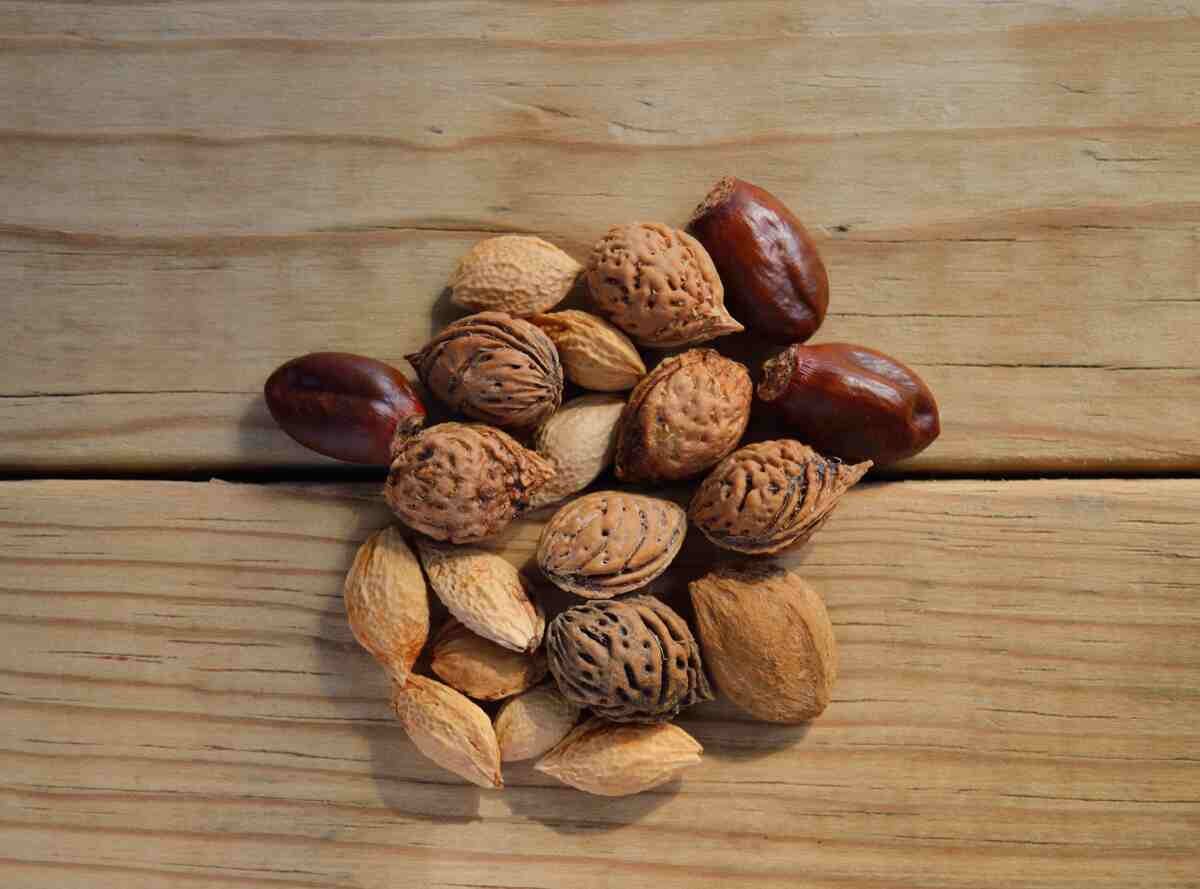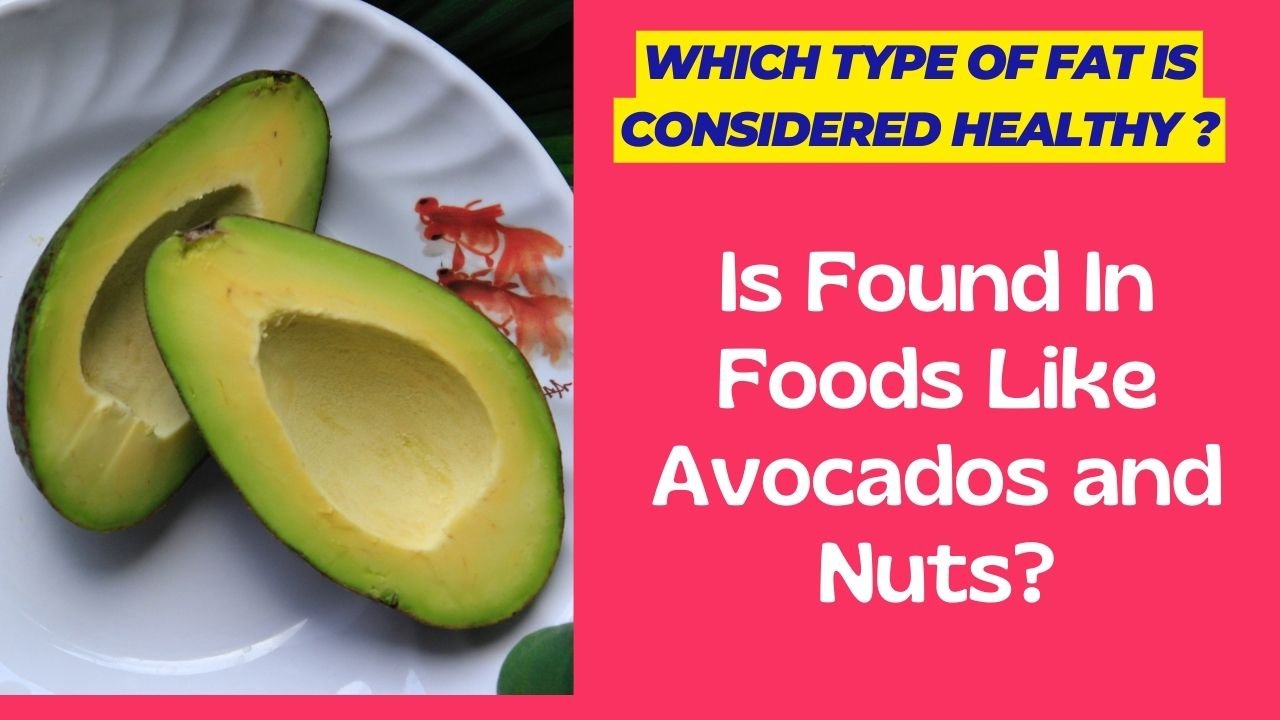The Healthy Fat Found in Avocados and Nuts
In this comprehensive guide, we’ll explore the world of healthy fats, specifically the type found in foods like avocados and nuts. You’ll gain a deeper understanding of why these fats are good for you, their sources, and how they can be incorporated into a balanced diet.
Introduction
The quest for a healthy lifestyle has led many to question the types of fats they consume. Among the most celebrated fats are those found in avocados and nuts. These fats, often referred to as “healthy fats,” offer a range of benefits for your body. In this article, we’ll delve into the specifics of which type of fat is considered healthy and is found in foods like avocados and nuts, providing you with expert insights and answers to frequently asked questions.
The Importance of Healthy Fats
Understanding Dietary Fats
Before we dive into the specifics, let’s clarify the role of dietary fats. Fats are an essential macronutrient that your body needs for various functions, including energy production, nutrient absorption, and insulation of vital organs. Not all fats are created equal, though.
Types of Fat
Saturated vs. Unsaturated Fats
One crucial distinction in the world of fats is between saturated and unsaturated fats. Saturated fats, often found in red meat and dairy products, are known to raise LDL cholesterol levels and increase the risk of heart disease. On the other hand, unsaturated fats, like the ones in avocados and nuts, are considered heart-healthy.
Unsaturated fats
In the realm of nutritional science, unsaturated fats, those that remain in a fluidic state at ambient room temperatures, emerge as invaluable allies to human health. Their multifarious contributions encompass the enhancement of blood lipid profiles, mitigation of inflammatory responses, stabilization of cardiac arrhythmias, and orchestration of a myriad of other advantageous functions. It is within the botanical domain, comprising vegetable-derived oils, an assortment of nuts, and a plethora of seeds, where one predominantly encounters these commendable unsaturated fats.

There are two types of “good” unsaturated fats:
1. Monounsaturated fats are found in high concentrations in:
- Olive, peanut, and canola oils
- Avocados
- Nuts such as almonds, hazelnuts, and pecans
- Seeds such as pumpkin and sesame seeds
2. Polyunsaturated fats are found in high concentrations in
- Sunflower, corn, soybean, and flaxseed oils
- Walnuts
- Flax seeds
- Fish
- Canola oil – though higher in monounsaturated fat, it’s also a good source of polyunsaturated fat.
Omega-3 fats are a crucial type of polyunsaturated fat. The human body cannot produce them on its own, so they must be obtained from dietary sources.
- In the realm of procuring omega-3 fatty acids, an exceptional approach involves the consumption of fish, ideally 2-3 occasions per week.
- Optimal vegetarian sources that offer these prized omega-3 fats encompass flax seeds, walnuts, as well as canola or soybean oil.
- It’s worth noting that an elevated presence of omega-3 fatty acids in the bloodstream has been scientifically correlated with a diminished risk of untimely mortality, particularly within the elderly demographic.
- This significant finding emerges from a comprehensive investigation carried out by esteemed HSPH faculty members.
The majority of individuals tend to underconsume nutritious unsaturated fats. As per the recommendations of the American Heart Association, it is advised that approximately 8-10 percent of one’s daily caloric intake be derived from polyunsaturated fats. Furthermore, there exists compelling evidence indicating that augmenting the consumption of polyunsaturated fats, up to a maximum of 15 percent of daily calorie consumption, while substituting them for saturated fats, can effectively reduce the risk of heart disease.
- Dutch researchers conducted an analysis of 60 trials that examined the effects of carbohydrates and various fats on blood lipid levels. In trials in which polyunsaturated and monounsaturated fats were eaten in place of carbohydrates, these good fats decreased levels of harmful LDL and increased protective HDL. (Source: Harvard)
- More recently, a randomized trial known as the Optimal Macronutrient Intake Trial for Heart Health (OmniHeart) showed that replacing a carbohydrate-rich diet with one rich in unsaturated fat, predominantly monounsaturated fats, lowers blood pressure, improves lipid levels, and reduces the estimated cardiovascular risk. (Source: Harvard)
Finding Foods with Healthy Fats is a handy visual guide to help you determine which fats are beneficial, and which are harmful.
Saturated Fats
Every food item that contains fat encompasses a blend of distinct fat types. Even in the case of wholesome foods like chicken and nuts, there exist minute quantities of saturated fat, albeit significantly less when compared to the levels present in beef, cheese, and ice cream. Saturated fat predominantly manifests in animal-based products, yet certain plant-based foods also register high levels of saturated fats. Notably, coconut, coconut oil, palm oil, and palm kernel oil stand out as prime examples of plant sources rich in saturated fats.
- The Dietary Guidelines for Americans recommends getting less than 10 percent of calories each day from saturated fat.
- The American Heart Association goes even further, recommending limiting saturated fat to no more than 7 percent of calories.
- Cutting back on saturated fat will likely have no benefit, however, if people replace saturated fat with refined carbohydrates. Eating refined carbohydrates in place of saturated fat does lower “bad” LDL cholesterol, but it also lowers the “good” HDL cholesterol and increases triglycerides. The net effect is as bad for the heart as eating too much saturated fat.
In the United States, the biggest sources of saturated fat (12) in the diet are
- Pizza and cheese
- Whole and reduced fat milk, butter and dairy desserts
- Meat products (sausage, bacon, beef, hamburgers)
- Cookies and other grain-based desserts
- A variety of mixed fast food dishes
Though decades of dietary advice suggested saturated fat was harmful, in recent years that idea has begun to evolve. Several studies suggest that eating diets high in saturated fat do not raise the risk of heart disease, with one report analyzing the findings of 21 studies that followed 350,000 people for up to 23 years.
- Investigators looked at the relationship between saturated fat intake and coronary heart disease (CHD), stroke, and cardiovascular disease (CVD). Their controversial conclusion: “There is insufficient evidence from prospective epidemiologic studies to conclude that dietary saturated fat is associated with an increased risk of CHD, stroke, or CVD.
- A well-publicized 2014 study questioned the link between saturated fat and heart disease, but HSPH nutrition experts determined the paper to be seriously misleading. In order to set the record straight, Harvard School of Public Health convened a panel of nutrition experts and held a teach-in, “Saturated or not: Does type of fat matter?“
The overarching message is that cutting back on saturated fat can be good for health if people replace saturated fat with good fats, especially, polyunsaturated fats. (1, 15, 22) Eating good fats in place of saturated fat lowers the “bad” LDL cholesterol, and it improves the ratio of total cholesterol to “good” HDL cholesterol, lowering the risk of heart disease.
Eating good fats in place of saturated fat can also help prevent insulin resistance, a precursor to diabetes. So while saturated fat may not be as harmful as once thought, evidence clearly shows that unsaturated fat remains the healthiest type of fat.
Trans Fats
Trans fatty acids, more commonly called trans fats, are made by heating liquid vegetable oils in the presence of hydrogen gas and a catalyst, a process called hydrogenation.
- Partially hydrogenating vegetable oils makes them more stable and less likely to become rancid. This process also converts the oil into a solid, which makes them function as margarine or shortening.
- Partially hydrogenated oils can withstand repeated heating without breaking down, making them ideal for frying fast foods.
- For these reasons, partially hydrogenated oils became a mainstay in restaurants and the food industry – for frying, baked goods, and processed snack foods and margarine.
Partially hydrogenated oil is not the only source of trans fats in our diets. Trans fats are also naturally found in beef fat and dairy fat in small amounts.
Trans fats are the worst type of fat for the heart, blood vessels, and rest of the body because they:
- Raise bad LDL and lower good HDL
- Create inflammation, a reaction related to immunity – which has been implicated in heart disease, stroke, diabetes, and other chronic conditions
- Contribute to insulin resistance
- Can have harmful health effects even in small amounts – for each additional 2 percent of calories from trans fat consumed daily, the risk of coronary heart disease increases by 23 percent.
(Content Source: Harvard)
The Healthy Fat in Avocados
Monounsaturated Fats
Avocados are renowned for their rich content of monounsaturated fats. These fats are liquid at room temperature and offer a variety of health benefits. They have been linked to improved heart health, reduced inflammation, and better insulin sensitivity.
Benefits of Monounsaturated Fats
- Heart Health: Monounsaturated fats can lower bad cholesterol levels, reducing the risk of heart disease.
- Weight Management: These fats help control appetite and promote a feeling of fullness.
- Skin Health: The fats in avocados contribute to supple, glowing skin.
The Healthy Fat in Nuts
Polyunsaturated Fats
Nuts, including almonds, walnuts, and pistachios, are packed with polyunsaturated fats, which are also considered healthy for consumption. These fats are known for their omega-3 and omega-6 fatty acids, which play crucial roles in various bodily functions.
Benefits of Polyunsaturated Fats
- Brain Health: Omega-3 fatty acids in nuts support cognitive function and reduce the risk of neurodegenerative diseases.
- Anti-Inflammatory: These fats have anti-inflammatory properties, aiding in the prevention of chronic diseases.
- Joint Health: Omega-3s may alleviate joint pain and stiffness.
Incorporating Healthy Fats into Your Diet
Now that we’ve established the benefits of healthy fats, let’s discuss how to integrate them into your daily meals. Here are some practical tips:

- Avocado Toast: Start your day with a nutritious breakfast by spreading avocado on whole-grain toast.
- Nutty Snacks: Carry a small bag of mixed nuts for a quick, healthy snack.
- Salad Enhancement: Add sliced avocados and nuts to your salads for extra flavor and nutrition.
FAQs
Q: Are avocados and nuts high in calories due to their fat content?
Avocados and nuts are calorie-dense because of their fat content, but they provide essential nutrients. Moderation is key to incorporating them into a balanced diet.
Q: Can healthy fats help with weight loss?
Yes, healthy fats can aid in weight loss by promoting satiety and reducing cravings for unhealthy snacks.
Q: Are there any nuts to avoid due to their fat composition?
While most nuts are healthy, some are higher in saturated fats. It’s advisable to consume a variety of nuts for a balanced intake of different fats.
Q: How much healthy fat should I consume daily?
Around 20-35% of your daily calorie intake should come from healthy fats, including those in avocados and nuts.
Q: Can these fats be used for cooking?
Yes, you can use avocado oil and nut oils for cooking at low to medium heat. Their high smoke points make them suitable for various dishes.
Q: Are there any allergic reactions associated with nuts?
Nuts are common allergens. If you have a nut allergy, consult a healthcare professional and avoid nuts.
Conclusion
In conclusion, the type of fat found in foods like avocados and nuts, specifically monounsaturated and polyunsaturated fats, are indeed considered healthy for consumption. They offer a myriad of health benefits, from heart health to cognitive function support. By incorporating these fats into your diet in moderation, you can enjoy their nutritional advantages while maintaining a balanced approach to eating.
















